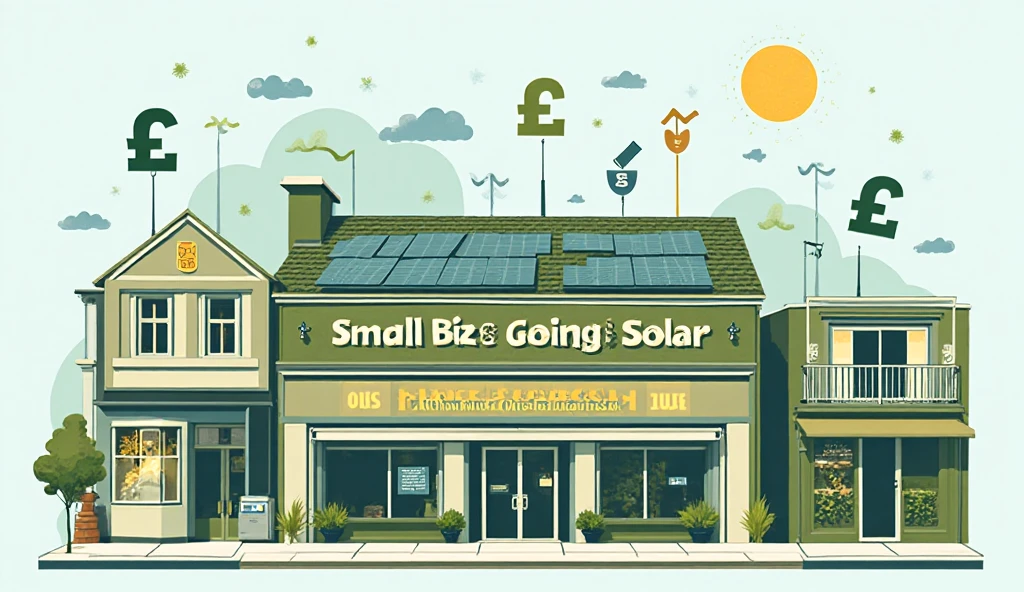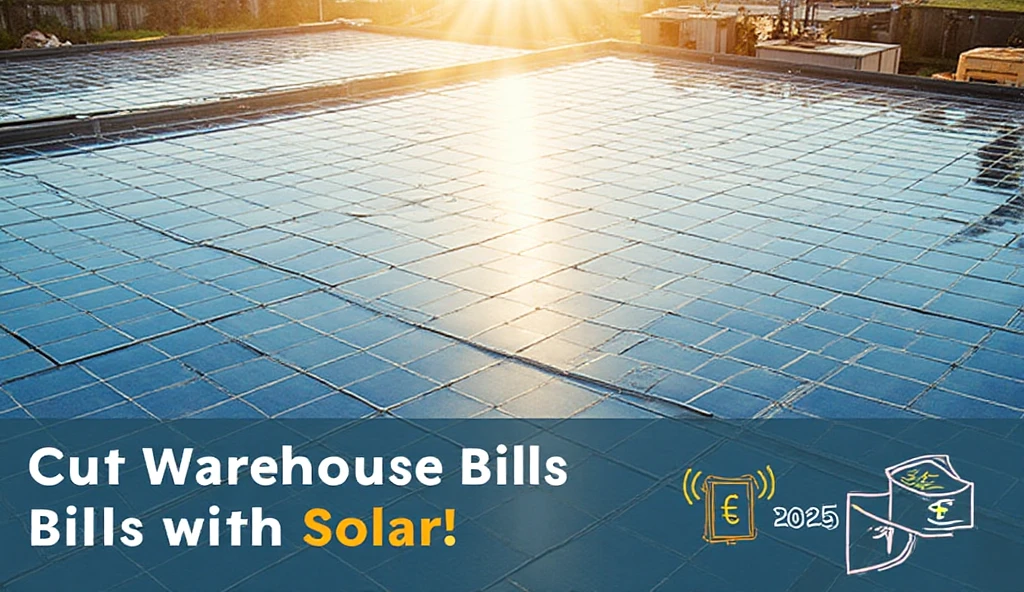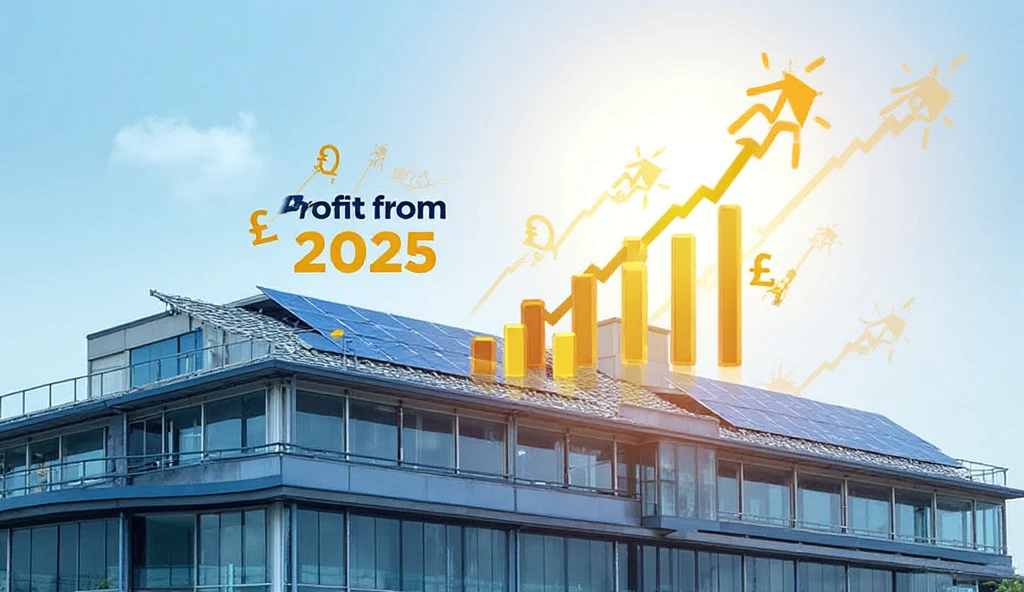In 2025, more UK small businesses than ever are turning to solar energy to cut costs, boost sustainability, and protect themselves from rising electricity prices. With improved technology, better financing options, and generous tax incentives, solar power is no longer a luxury — it’s a smart investment
From high street retailers to manufacturing units and office-based firms, solar panels are being installed on rooftops, warehouses, and even car parks across the country. Here’s why so many UK SMEs are making the switch

Slashing Energy Bills in an Unpredictable Market
Electricity prices in the UK remain volatile, and small businesses — often on standard tariffs — feel the pressure more than larger corporations. Installing solar panels gives business owners control over part of their energy costs. A typical SME with a 30kW to 50kW solar PV system can save between £3,000 and £8,000 per year on electricity bills. Those with higher daytime energy usage such as bakeries, workshops, salons, or small offices can offset even more of their usage with free on-site solar power
Protecting Profit Margins
Small businesses often operate on tight profit margins. By generating their own electricity, business owners reduce their exposure to rising utility costs, which improves long-term financial planning. Solar energy helps stabilise cash flow, reduce overheads, and create financial headroom that can be reinvested elsewhere in the business
Tax Relief Through Capital Allowances
Under current UK tax law, small businesses can claim 100% capital allowances on qualifying solar panel investments. This means the full cost of the system — including equipment, labour, and installation — can be deducted from taxable profits in the year of purchase. Known as “Full Expensing,” this policy effectively reduces the real cost of installation and shortens the payback period. For many SMEs, this makes solar one of the most tax-efficient energy upgrades available in 2025
Taking Advantage of Smart Export Guarantee (SEG)
The Smart Export Guarantee (SEG) allows businesses to earn money for excess solar electricity exported back to the National Grid. SEG payments can amount to several hundred pounds per year, depending on system size and export tariff. These payments are especially useful for businesses with lower weekend or holiday usage, where more solar electricity is exported during downtime
Improving ESG Scores and Brand Reputation
More consumers, clients, and investors are holding businesses accountable for their environmental impact. Installing solar panels is a visible and measurable step toward sustainability. For B2B and B2C companies alike, going solar boosts Environmental, Social, and Governance (ESG) credentials. It can also enhance tender applications, help meet supply chain requirements, and attract environmentally conscious customers
Meeting Net Zero and Regulatory Targets
The UK government has committed to achieving net zero carbon emissions by 2050. Many businesses will eventually be required to report on and reduce their carbon footprint. Getting ahead of this curve by adopting solar now helps small firms future-proof their operations. Solar panels can reduce a company’s carbon footprint by several tonnes of CO₂ per year, which contributes directly to environmental compliance
Unlocking New Funding and Green Finance
Green business funding is growing rapidly. From low-interest loans to local authority grants, solar installations are now supported by a variety of finance options. Some regional development agencies also offer matching funds or incentives to install renewables. Banks and lenders are increasingly offering preferential rates for sustainable upgrades, especially for businesses that pair solar with other improvements like LED lighting or heat pumps
Minimal Disruption and Quick Installation
One of the biggest concerns among small business owners is operational downtime. Fortunately, most commercial solar installations can be completed with minimal disruption. Roof-mounted systems typically take 1–3 days to install and can often be done outside of business hours. Ground-mounted or carport solutions may take longer but still offer low interference with daily operations
Fast Return on Investment
Commercial solar systems typically offer a return on investment within 4 to 7 years, depending on usage and export rates. After that, businesses can enjoy over 20 years of low-cost, stable electricity. Unlike many capital purchases, solar panels start generating value immediately, often from the first month of operation
Supporting Local Energy Resilience
By generating power on-site, small businesses reduce strain on the local grid and contribute to broader energy security. In some regions, this decentralised generation is critical to avoiding outages, especially during peak demand. As battery storage becomes more common, some businesses also gain backup power for critical systems during blackouts
Enhancing Property Value and Leasing Appeal
Solar panels can improve the appeal and value of commercial properties. For landlords or businesses with long leases, adding renewable energy assets makes the building more attractive to eco-conscious tenants. It can also raise the Energy Performance Certificate (EPC) rating, which is increasingly required for letting or selling commercial premises
Aligning with Customer and Staff Expectations
Today’s customers and employees expect businesses to act sustainably. By investing in solar, companies demonstrate environmental leadership. Staff also appreciate working for businesses that reduce emissions and operate responsibly, which can aid recruitment and retention — especially among younger, environmentally aware workers
Final Thoughts
In 2025, solar energy is no longer just for large corporations or public-sector buildings. UK small businesses are embracing solar panels as a cost-saving, future-ready investment that improves their bottom line and brand at the same time. With financial incentives, tax relief, and long-term energy independence on offer, solar makes clear commercial sense for any business with usable roof space and consistent energy needs
If you’re a small business owner, now is the ideal time to explore your solar options. Contact an MCS-certified installer for a no-obligation assessment and find out how solar can start working for your business today



Leave a Comment